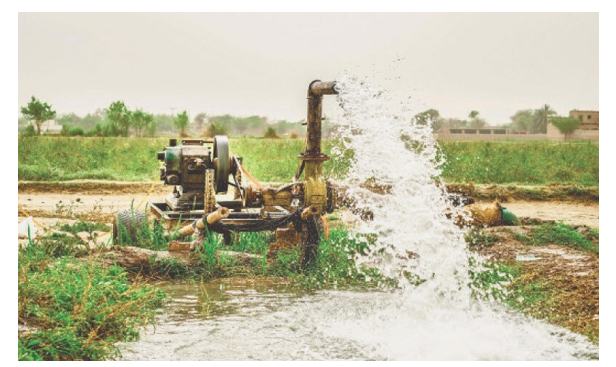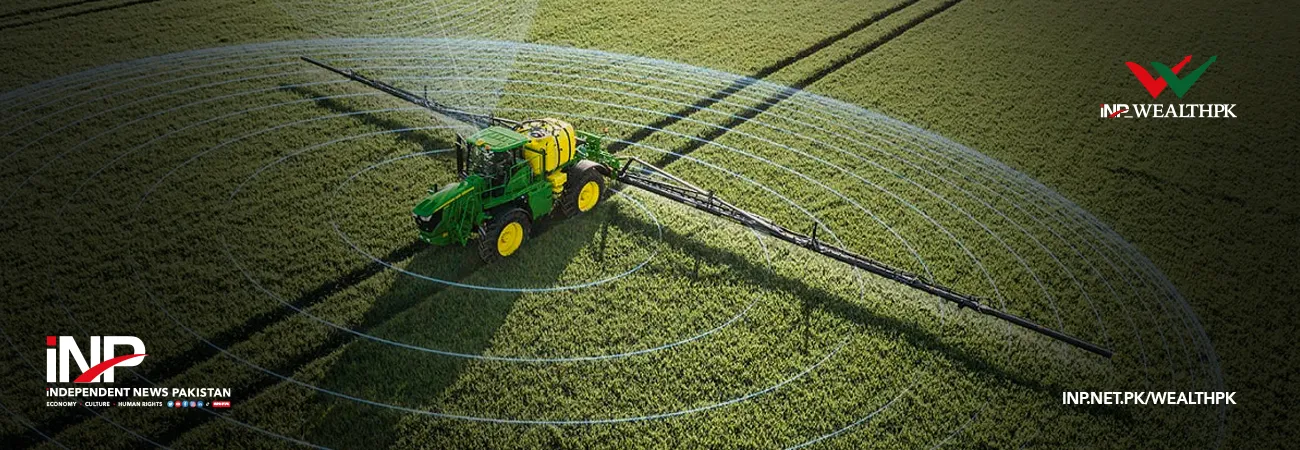INP-WealthPk
Arooj Zulfiqar
As Pakistan strives to meet the rising food demands of its population amid climate change challenges, swift adoption of modern irrigation

methods is a critical step towards achieving a more resilient and sustainable agriculture sector. “Water scarcity and the increasing need for water conservation are key climate change challenges for Pakistan. Water impacts every sector of the economy, from energy to agriculture, making it a vital component of national food security,” highlighted an expert of Pakistan Council of Research in Water Reservoirs (PCRWR). Speaking to WealthPK on condition of anonymity, she said, “The urgency for sustainable irrigation practices has never been greater than right now. Traditional methods, such as flood irrigation, have resulted in inefficient water use, soil degradation, and reduced crop yields. To address these issues, the government is shifting towards modern, high-efficiency irrigation systems to transform the agricultural landscape,” she pointed out. “Pakistan’s traditional irrigation methods, heavily reliant on surface water from canals, are proving increasingly inadequate.
Water losses due to seepage, evaporation, and inefficient irrigation practices are significant, exacerbating the strain on already limited water resources. This inefficiency not only hampers crop yields but also affects the livelihoods of millions of farmers,” the expert on water sources said. She said the implementation of modern irrigation technologies such as drip and sprinkler systems are necessary as these methods ensure the precise application of water directly to the root zone of plants, reducing wastage and promoting better crop health. “Additionally, the use of smart irrigation systems equipped with sensors and automated controls optimises water usage based on real-time data, further enhancing efficiency.” “One of the key objectives of this will be to alleviate the strain on Pakistan's water resources, which are already under stress due to population growth and climate change. By transitioning to modern irrigation systems, the country aims to achieve significant water savings, thereby preserving its limited freshwater reserves for future generations,” the PCRWR expert stressed.
“Furthermore, the adoption of modern irrigation technologies is expected to enhance the resilience of Pakistan's agricultural sector against the impacts of climate change. With erratic weather patterns becoming increasingly common, efficient irrigation systems can help farmers adapt to fluctuating conditions and maintain stable yields throughout the year,” she said. “Modernising irrigation systems is not just about conserving water; it has far-reaching economic benefits. Improved water management can lead to increased agricultural productivity, higher quality crops, and reduced costs for farmers, thus boosting the agricultural sector's contribution to the national economy, fostering growth and development,” said M Adnan, a senior scientific officer at the National Agricultural Research Centre (NARC).
“However, the successful implementation of this initiative requires concerted efforts from stakeholders, including government agencies, agricultural institutions, private sector partners, and local communities. Adequate investment in infrastructure development, farmer education, and research and development is crucial to ensure the widespread adoption and sustainability of high-efficiency irrigation systems,” he said. Pakistan's crop water productivity lags behind the global average, particularly for wheat and rice crops, which show lower yields per unit of water. Currently, wheat's water productivity is 0.76 kilogrammes per cubic meter, which is 24% below the global average of 1kg per cubic meter. Likewise, rice crops have a water productivity of 0.45kg per cubic meter, about 55% lower than the average in Asia.
Credit: INP-WealthPk













